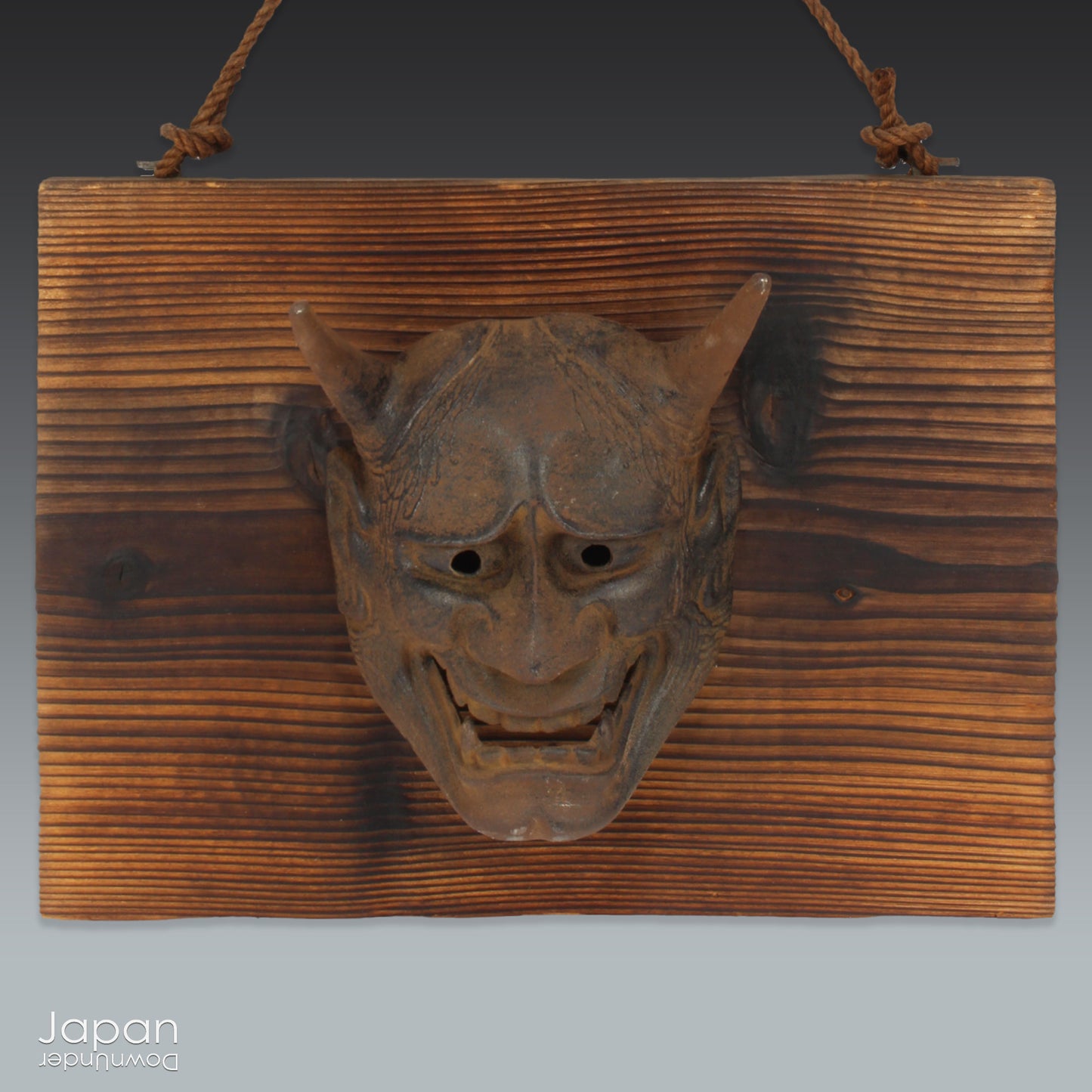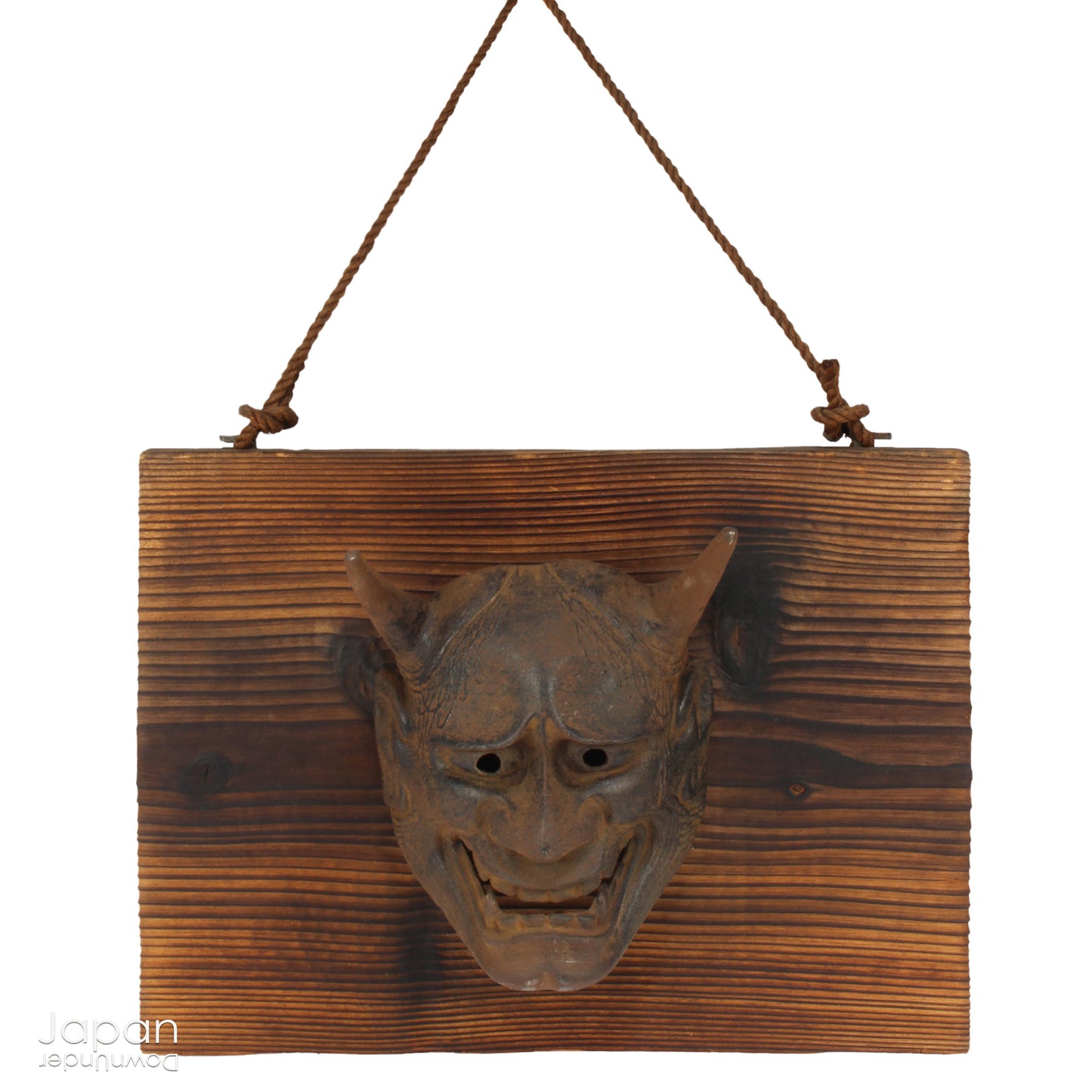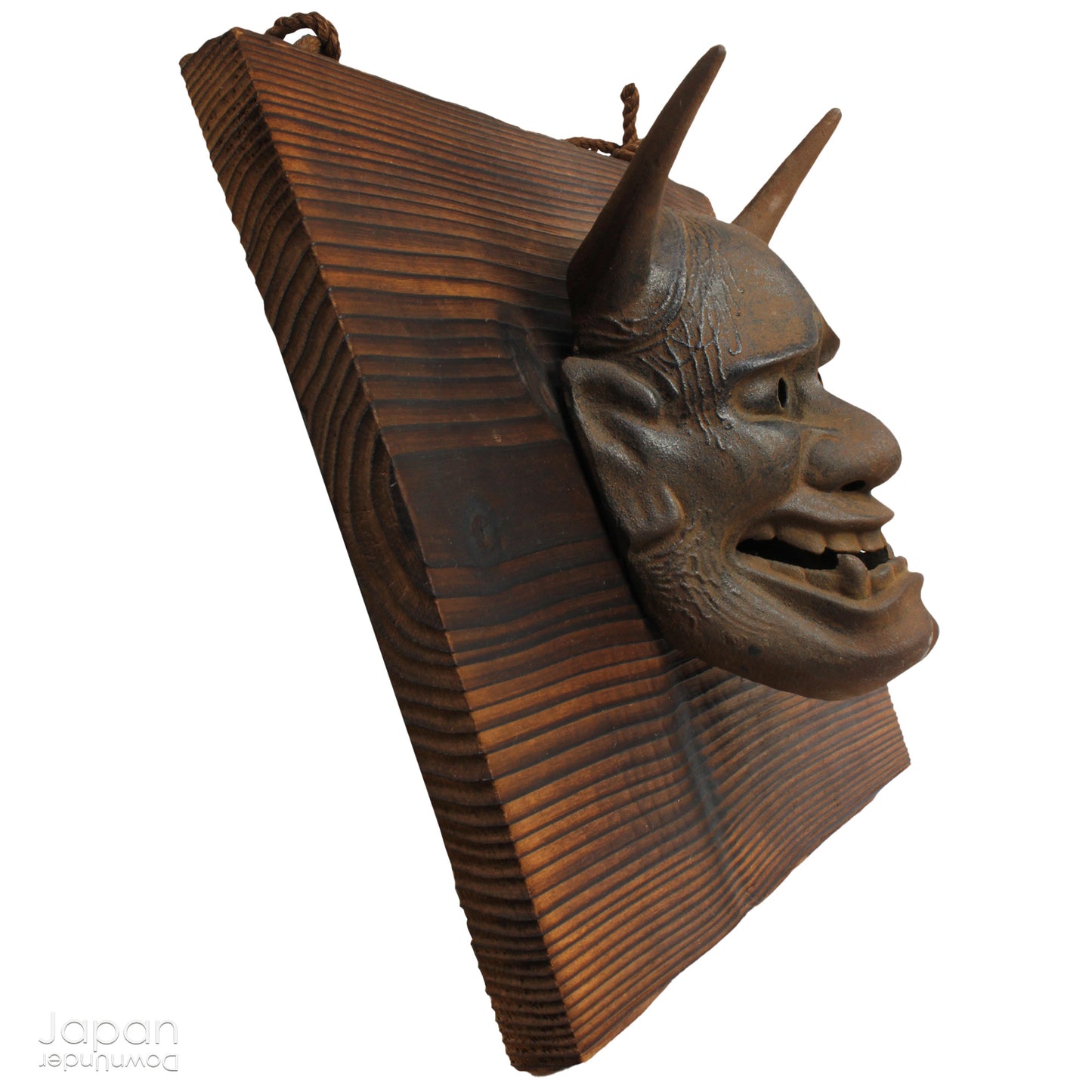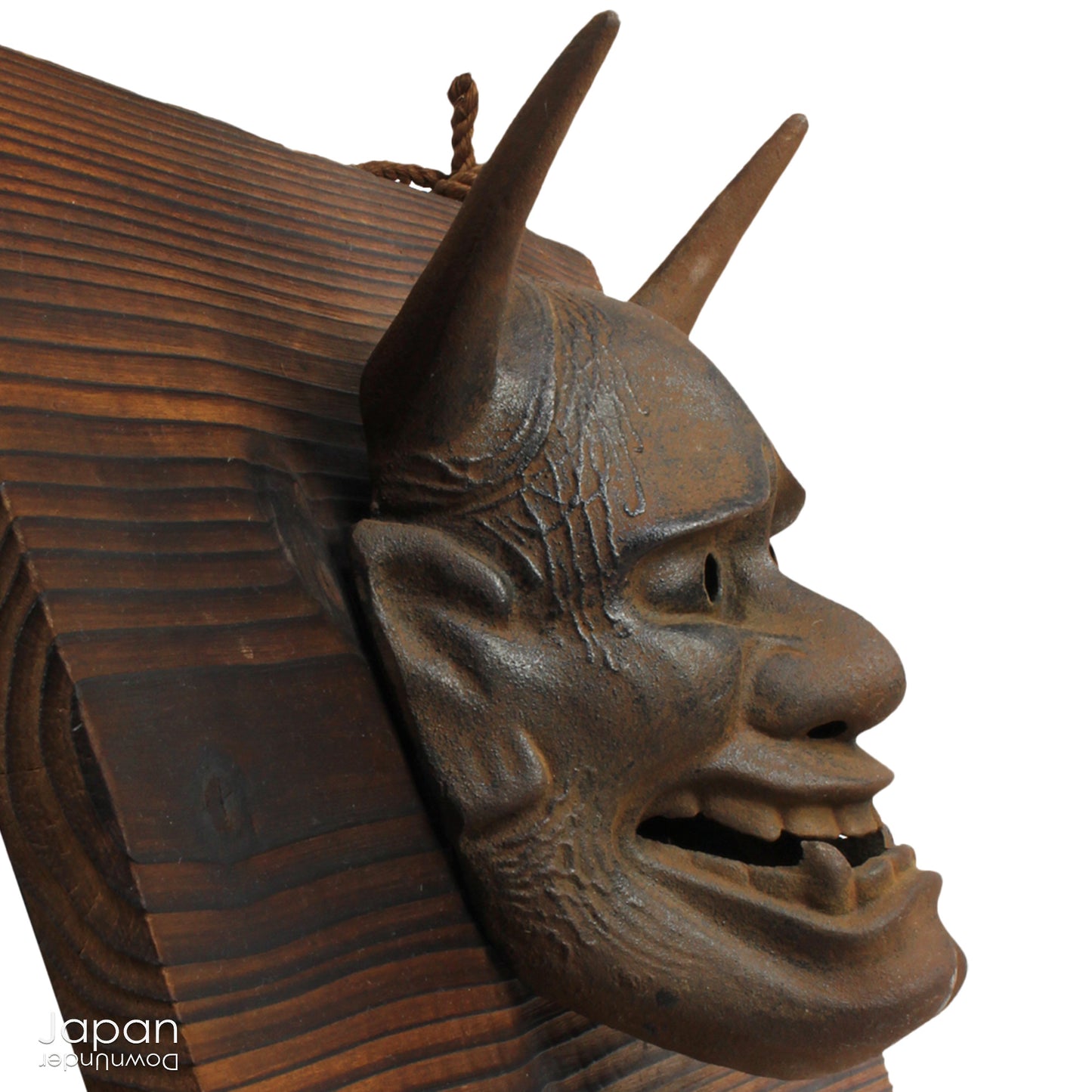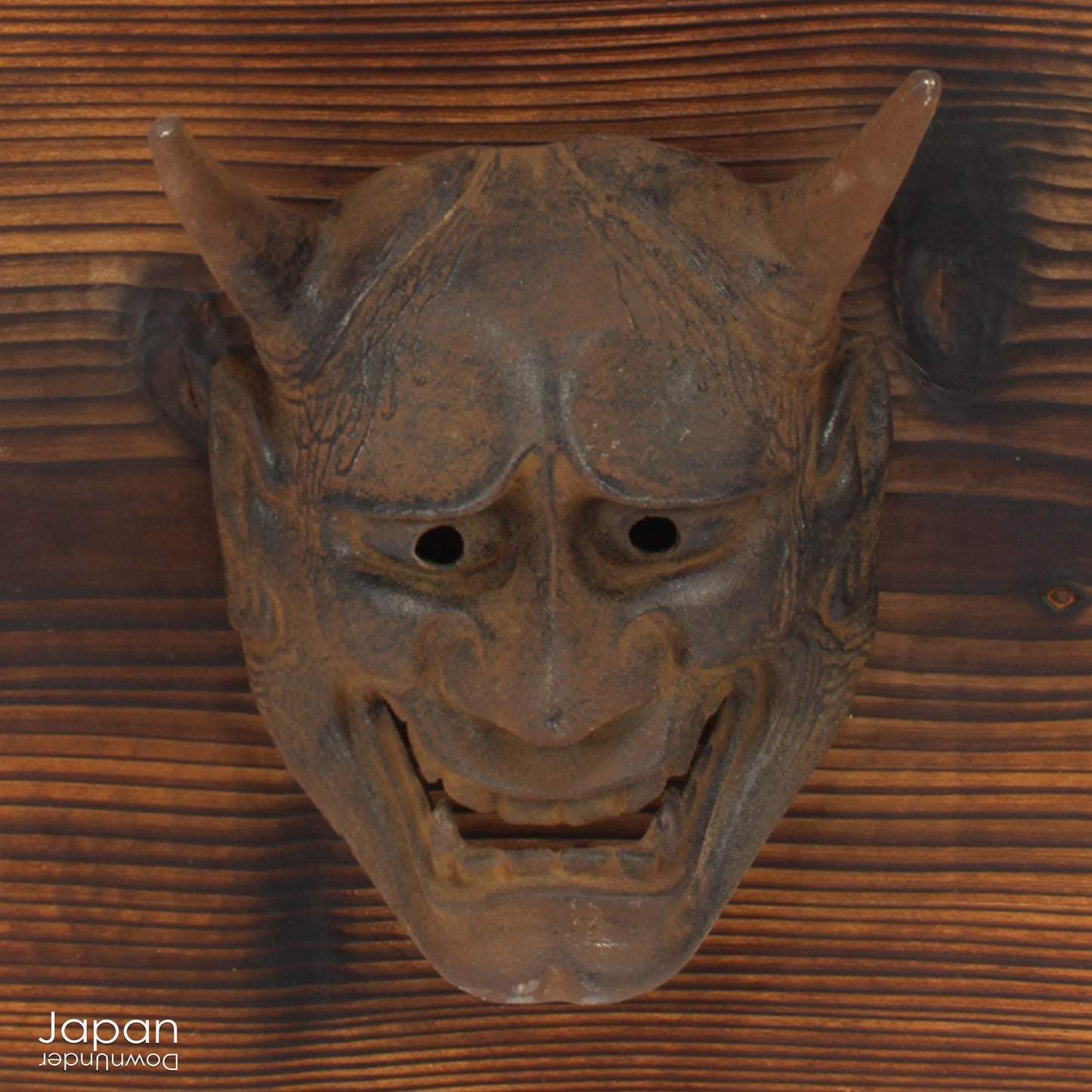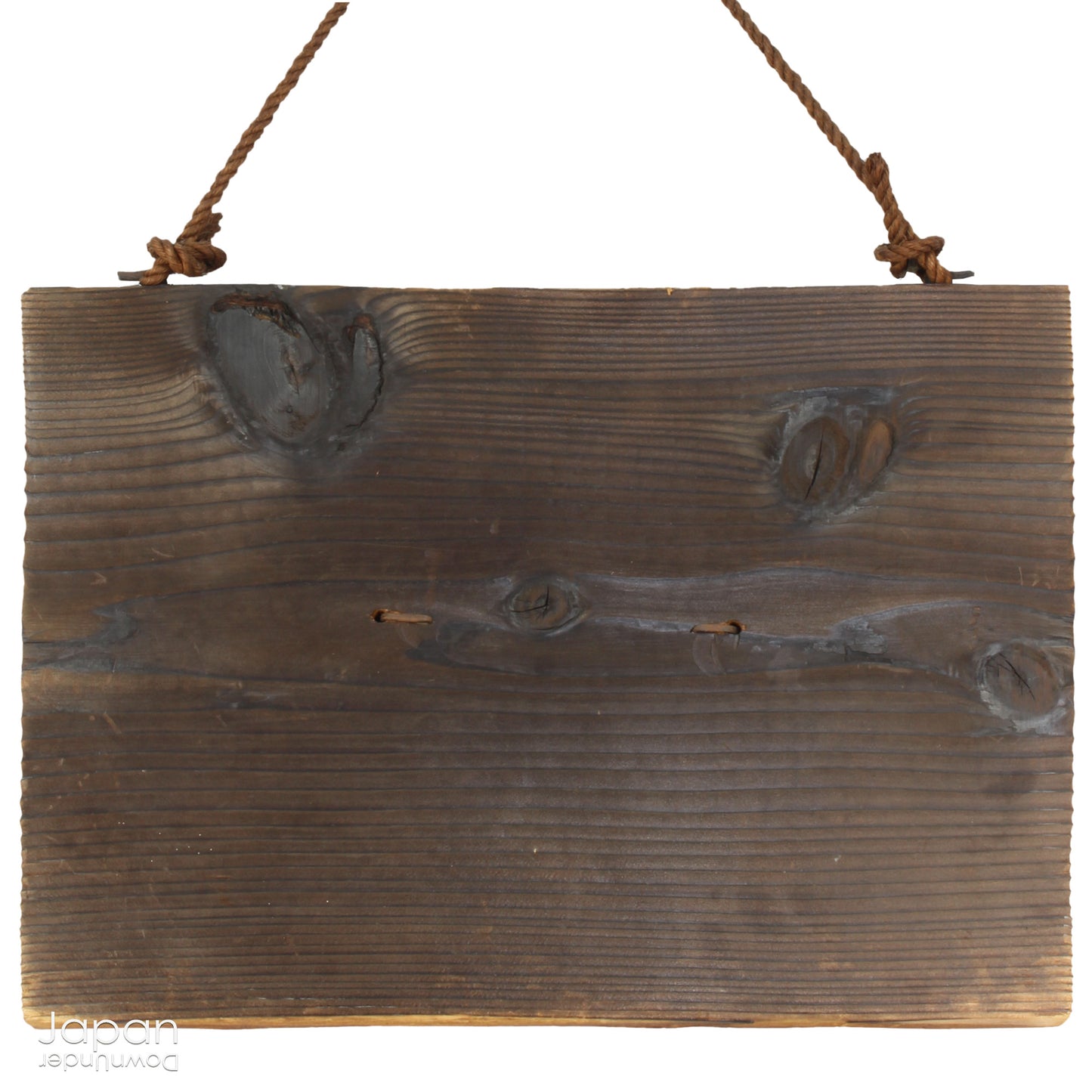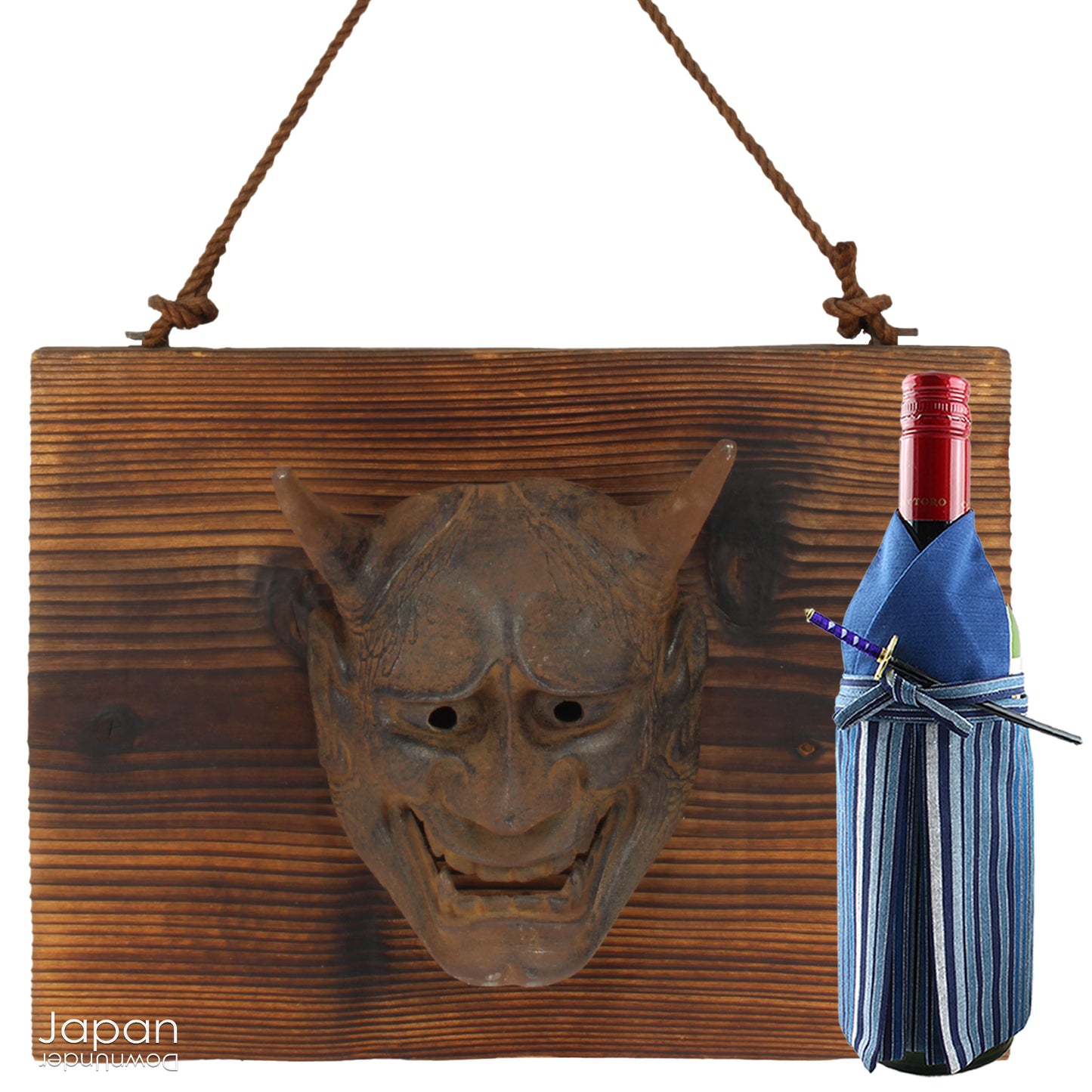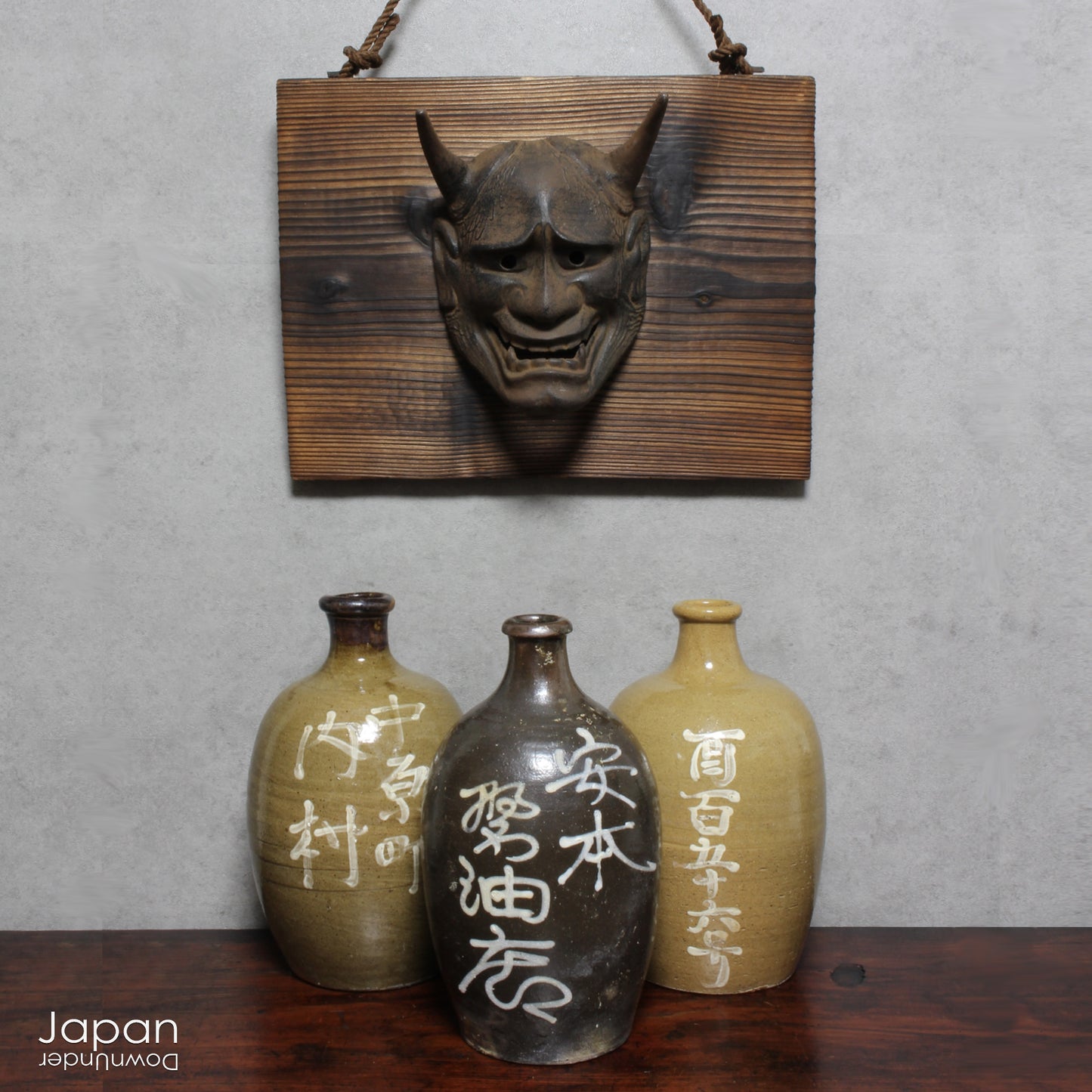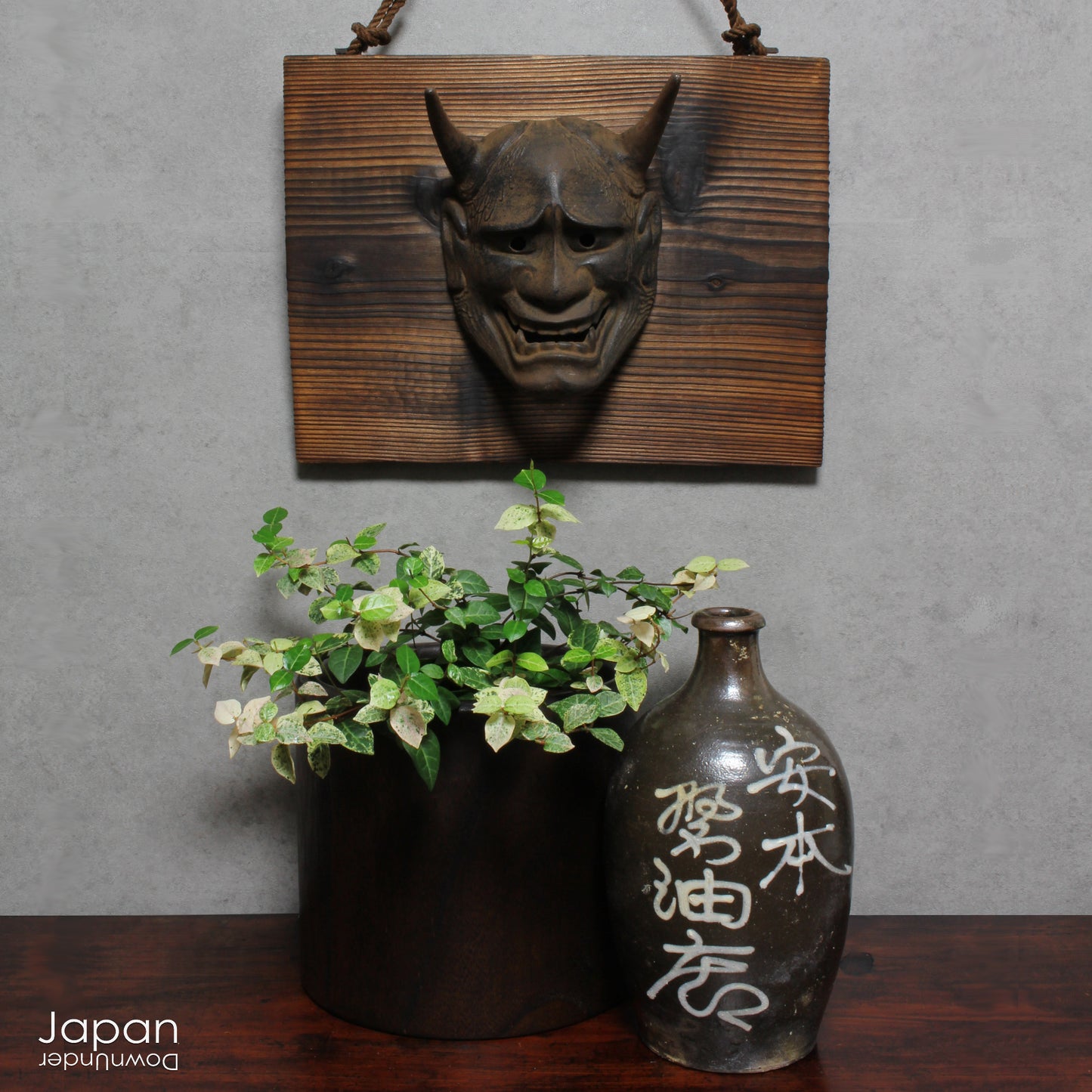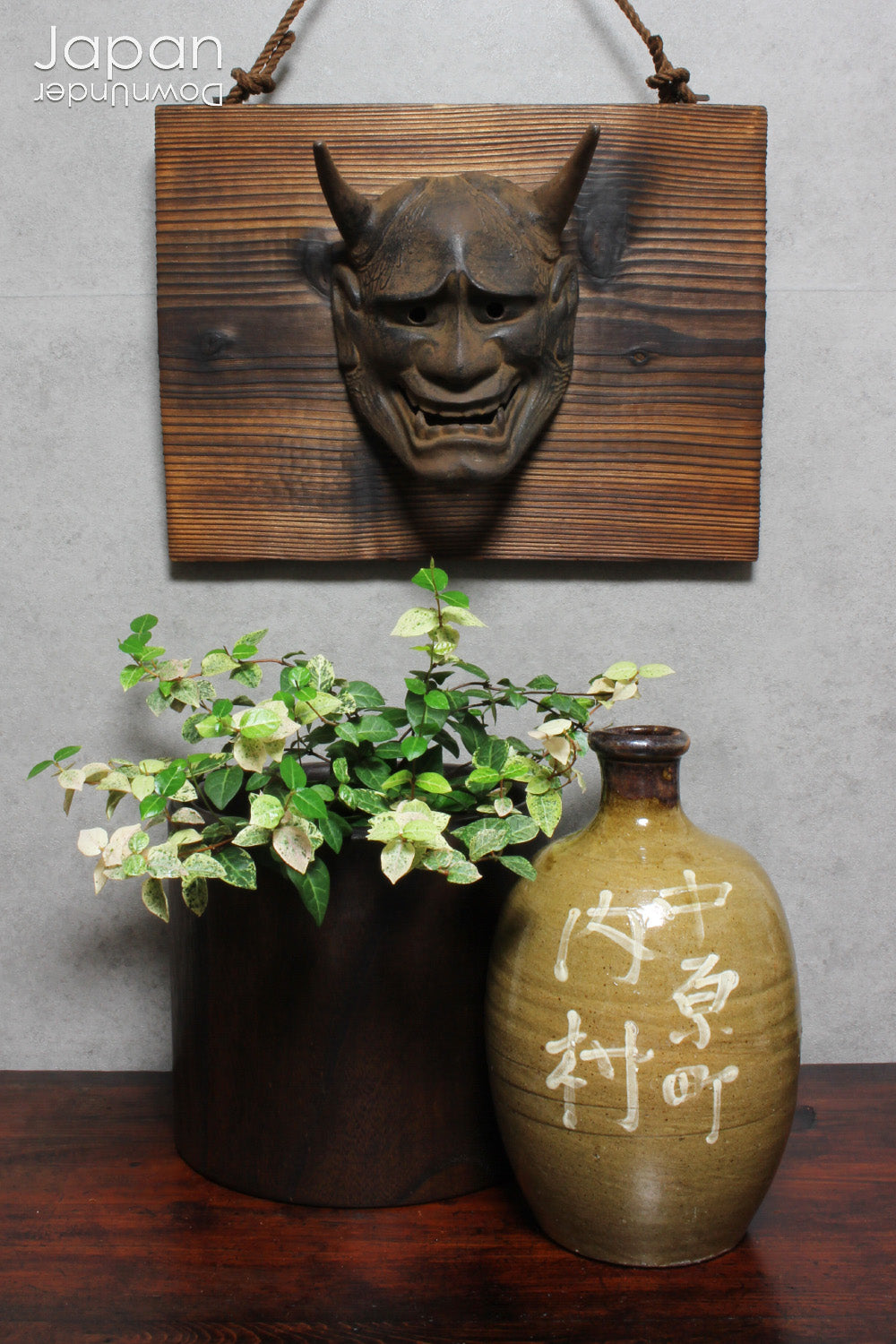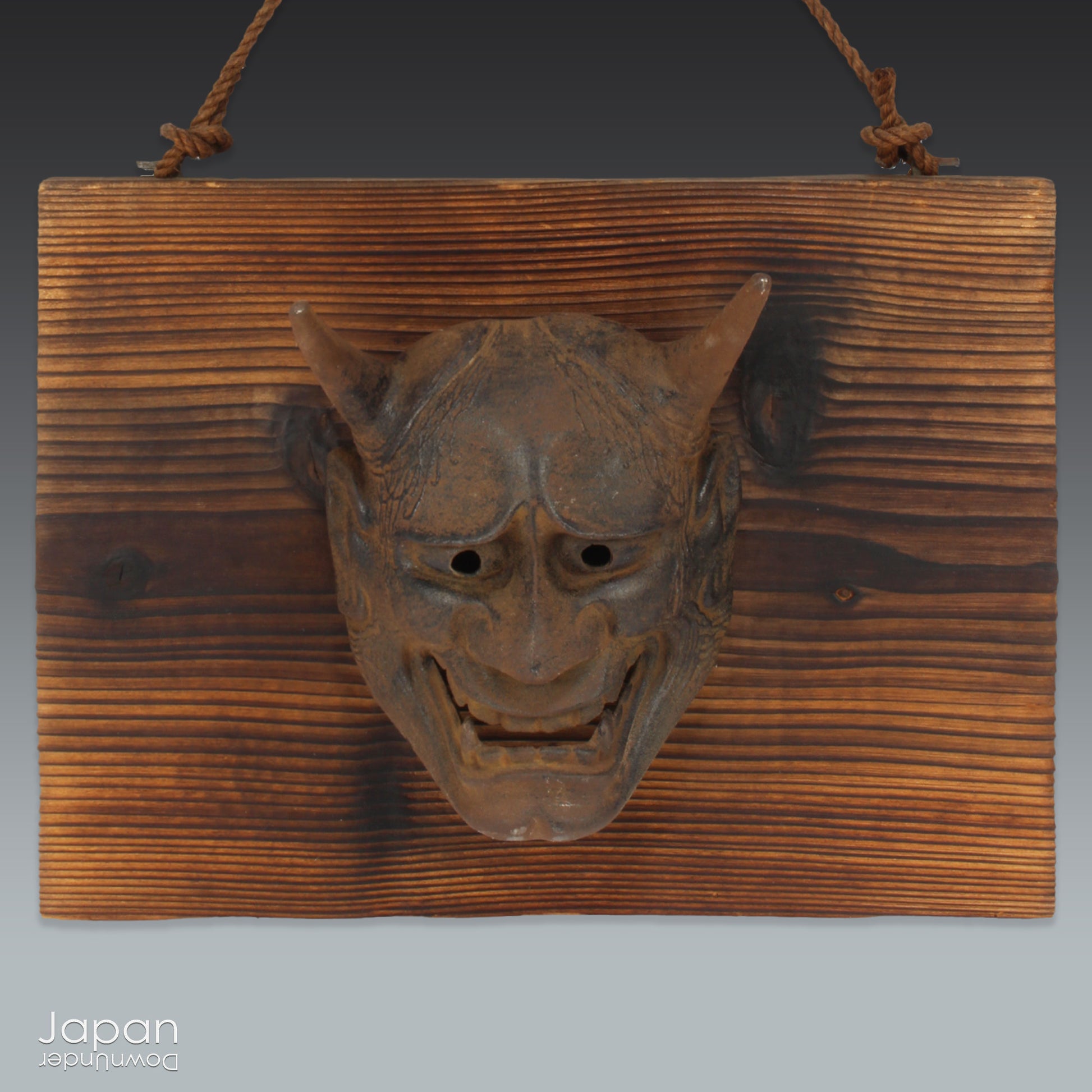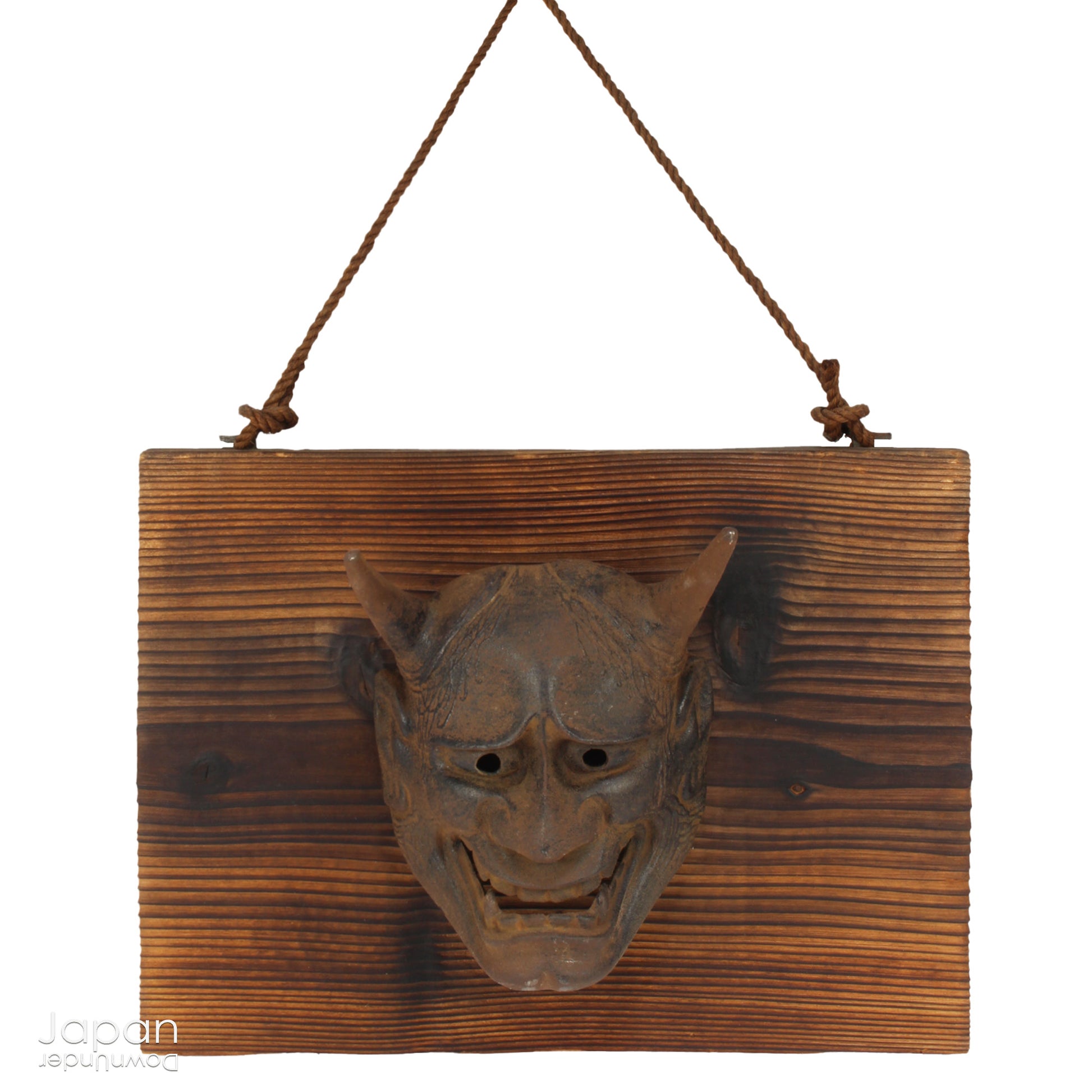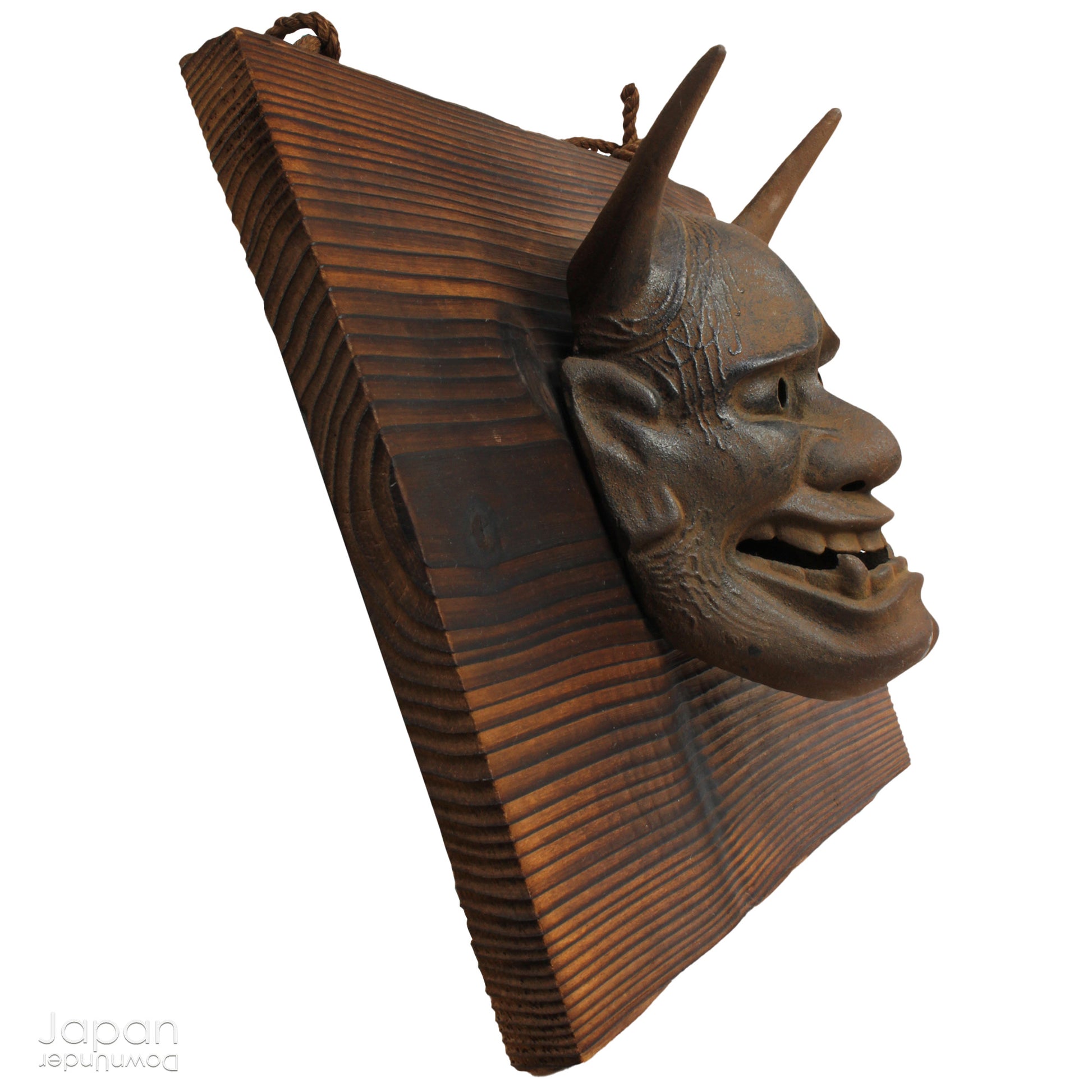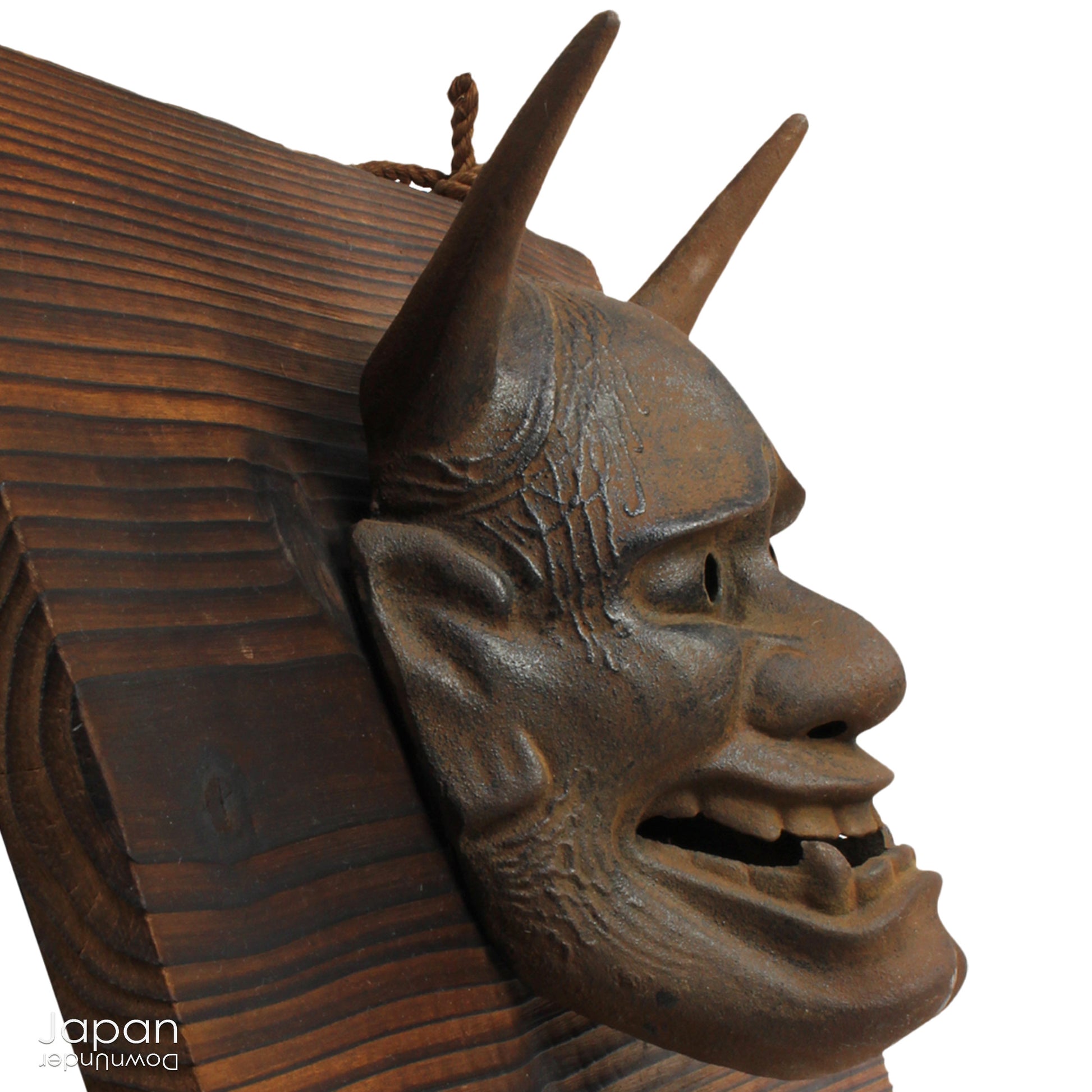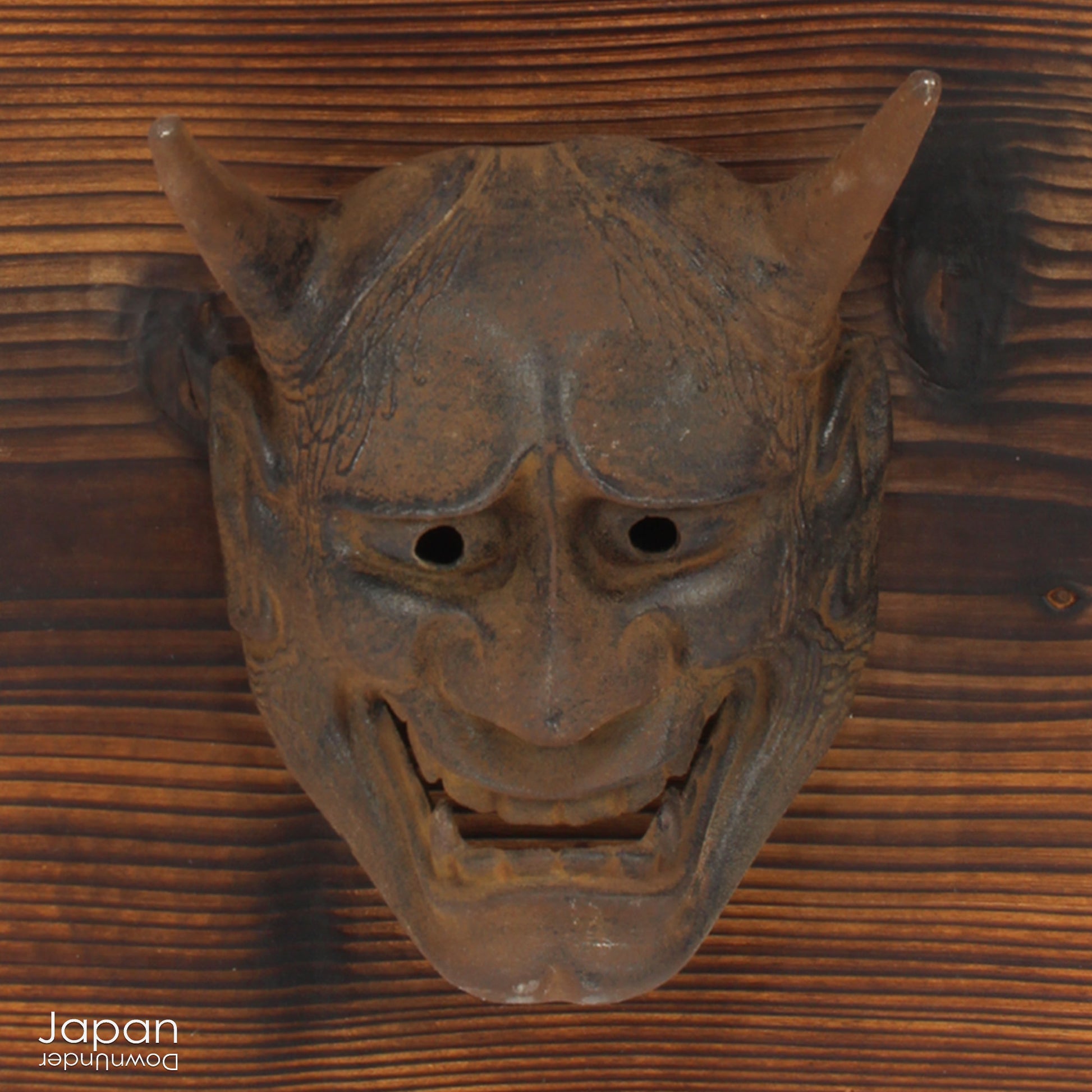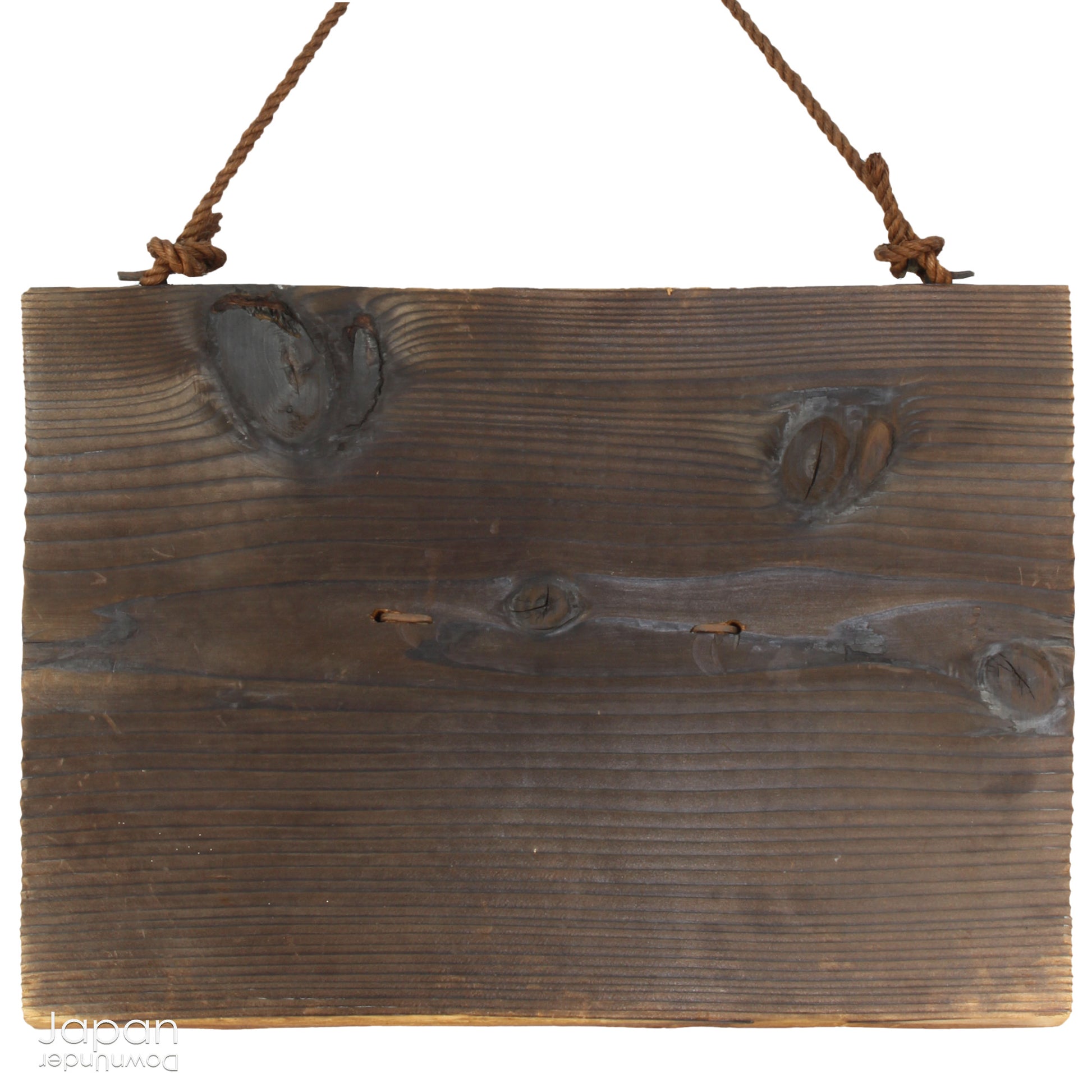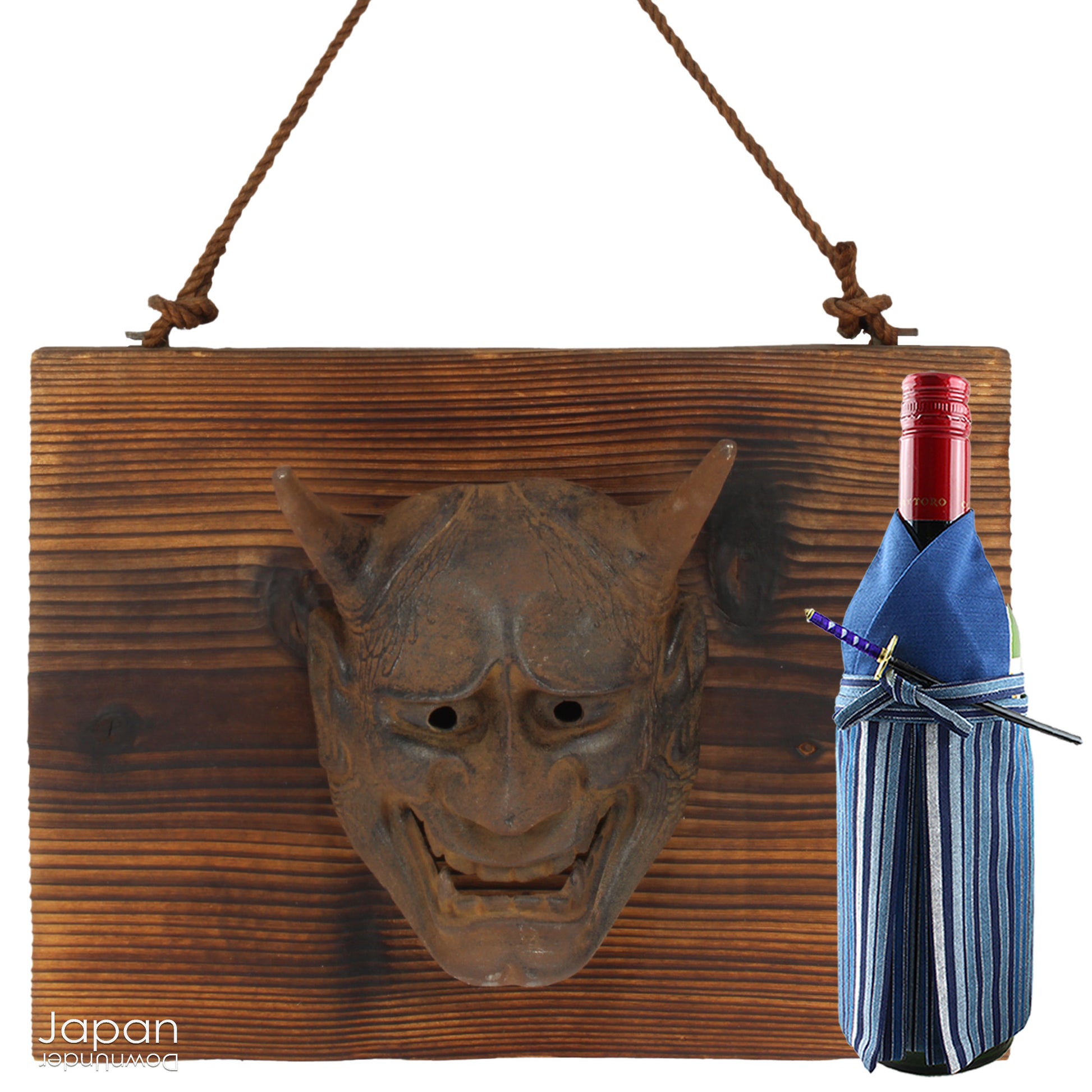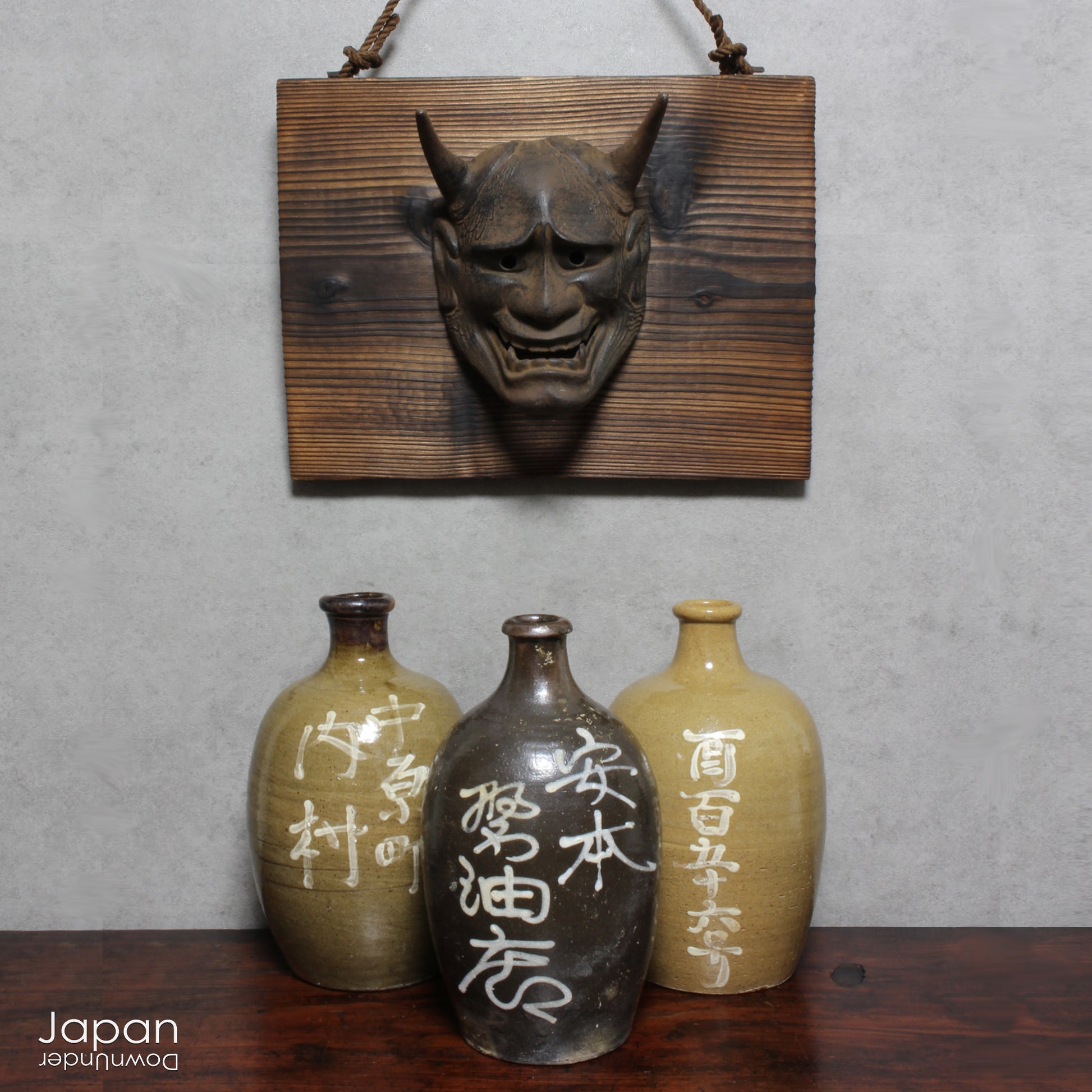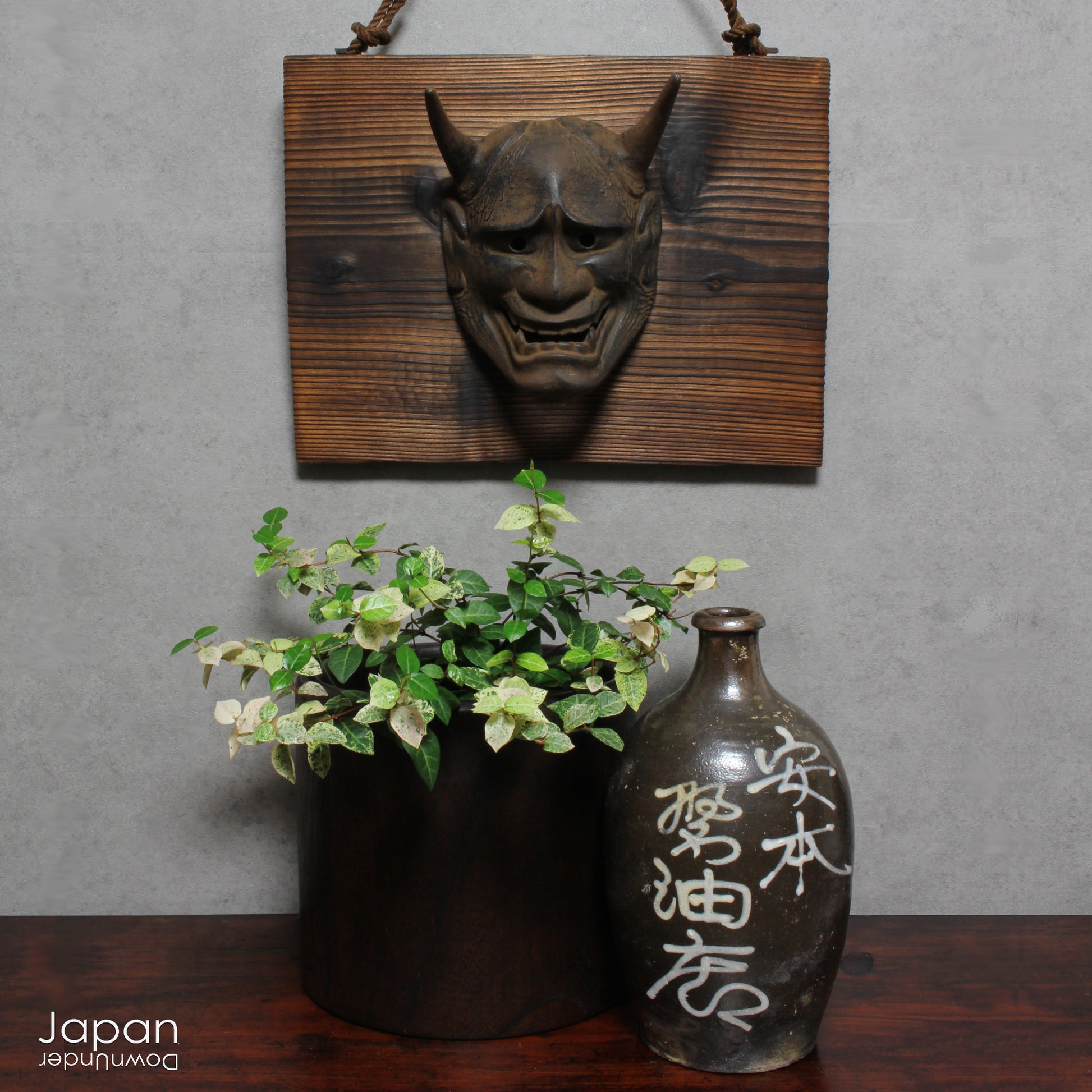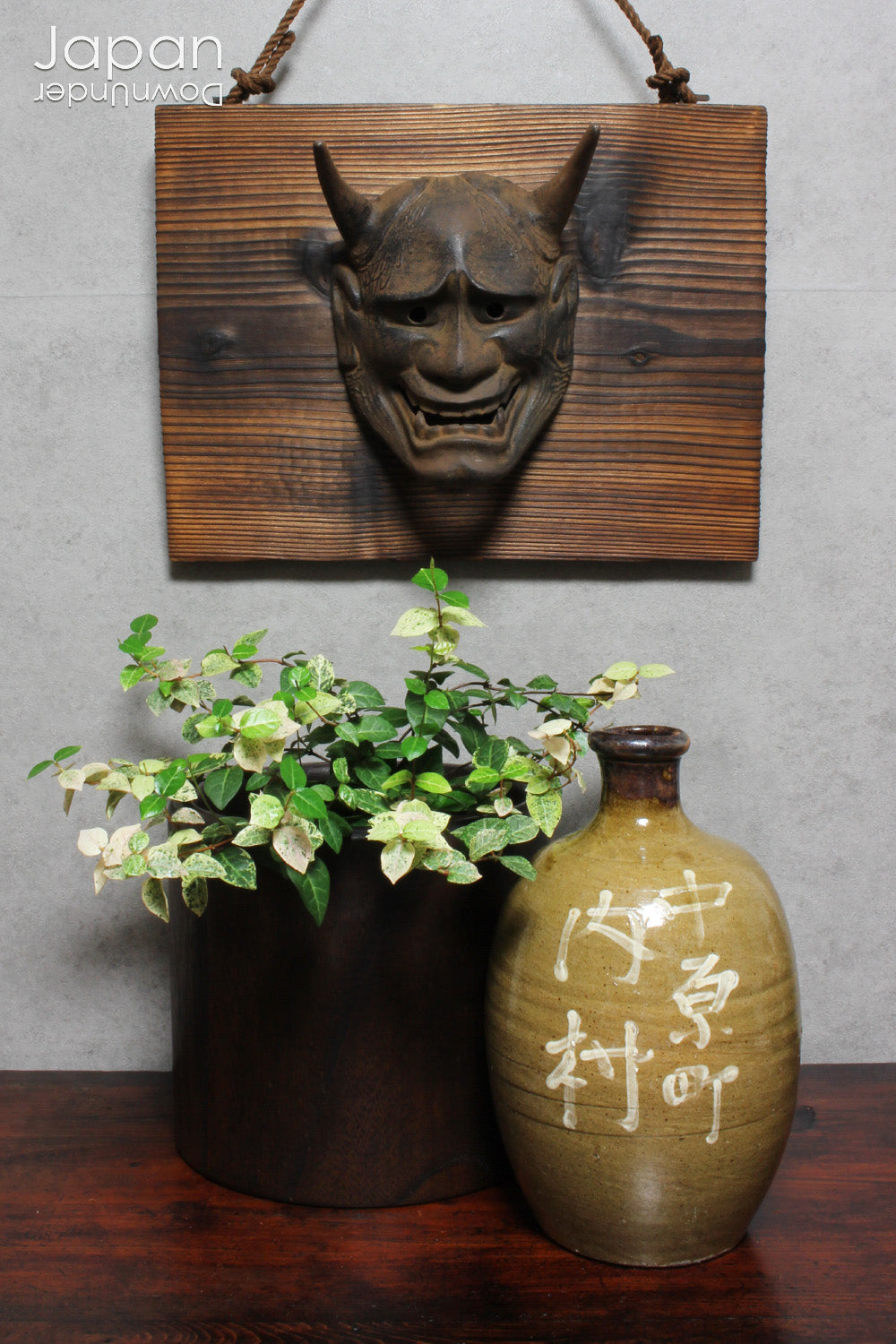JapanDownUnder
rusted bronze hannya mask on wood plaque - japanese folk art wall decor
rusted bronze hannya mask on wood plaque - japanese folk art wall decor
Couldn't load pickup availability
Love Japanese Style Like We Do
Enhance your space with this unique piece of Japanese folk art! A captivating old rusted bronze Hannya mask mounted on a charming rustic wood plaque - a truly wonderful addition to your wall decor. Infuse your home with the character and culture of this stunning find!
Hannya masks are not only rich in tradition but are also believed to be powerful talismans that bring good luck and protect against evil spirits. Famously featured in Japanese Noh plays, these masks symbolize the intense emotions of a woman consumed by jealousy, ultimately transforming into a demon.
This particular mask showcases a subtle rust patina, enhancing its vintage charm, while the thick paulownia wood plaque bears the darkened beauty of age. The piece is finished off with sturdy hemp rope tied to rusted fittings, amplifying its rustic appeal.
Whether displayed in a den, on a patio, in a quirky garden, or within a unique shop or restaurant, this Hannya mask makes a statement wherever it hangs.
- wood plaque measures 39 cm (15.4”) across x 30 cm (11.8”) tall
- weighs 2,720 gm.
SHIPPING INFORMATION
- please read our shipping notes in shipping policy.
- we use recycle packaging wherever possible and wrap for safety, rather than appearance!
ABOUT OUR VINTAGE, ANTIQUE AND OTHER ITEMS
We list pieces we feel are worthy of display. There may be scratches, dents, fading and signs of wear and tear. We try to explain the condition of each item exactly, but may miss something.
Information regarding the item and it’s age is obtained from dealers and our personal research. We do our best to give you the correct information but please be aware that we cannot guarantee this information.
Please message us prior to purchase with any questions you may have about our products.
HANNYA MASKS
Hannya masks symbolize a jealous woman in demon form. Hannya begins as a woman who is drowning in sadness but ends as a demon consumed by jealousy, bitterness, and resentment.
This image comes from the traditional use of Hannya masks in Japanese performance art; Noh and Kyogen theatre plays, and Shinto Kagura ritual dances, musical style plays with stories from Japanese folklore. When a female character was deeply betrayed and found herself becoming obsessive or jealous, the Hannya mask was worn to showcase the internal change that had occurred, typically as a result of a husband’s infidelity or betrayal. Interestingly, when the mask is held straight on, it appears angry and when the mask is tilted down it looks sad. The oldest Hannya mask found dates to 1558.
Hannya masks are most typically found in Noh theatre, one of the most famous Noh plays being the story of Prince Genji, a man who cheated on his wife with an obsessive and jealous mistress. When Prince Genji’s wife becomes pregnant he begins to ignore his mistress and attempts to cut ties with her. The mistress becomes overwhelmed with rage and jealousy and transforms into a demon. In her demonic state, the mistress possesses Prince Genji’s wife and eventually kills her.
Hannya masks are also used as a symbol to promote good luck and ward off evil. Throughout history they have been seen as powerful talismen against negative energy, people and spirits. The masks are believed to protect their owners from misfortune and help generate beneficial circumstances.
Share
